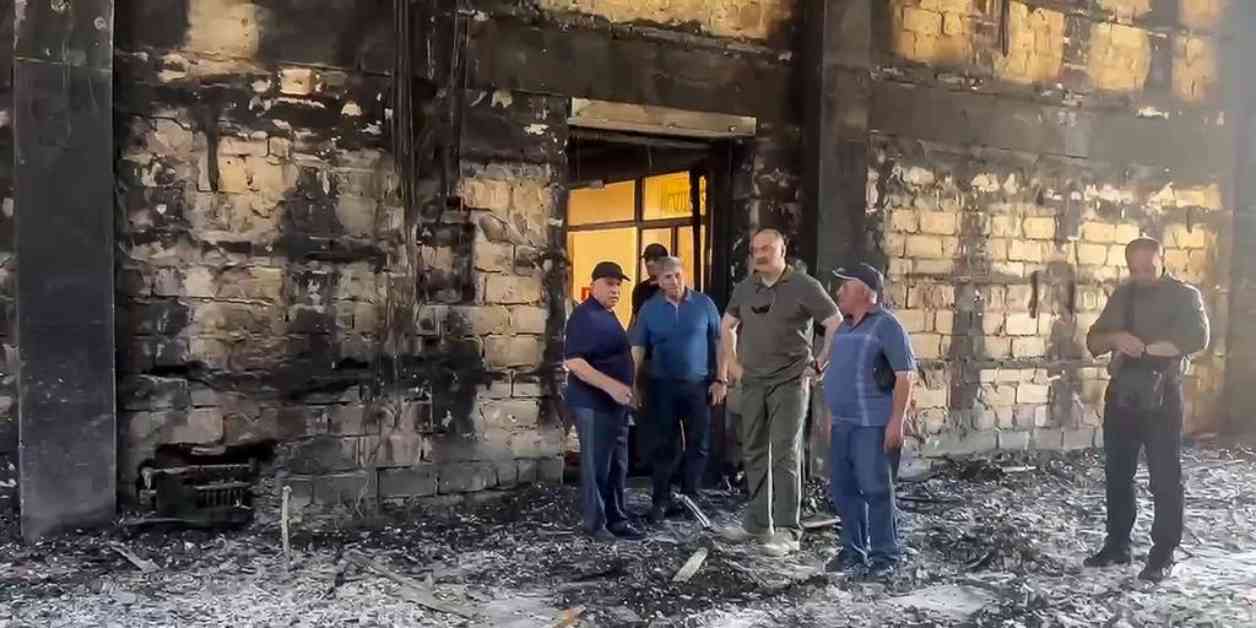A Russian official in Dagestan mentioned the presence of Islamic “sleeper cells” after a series of attacks on synagogues and churches left at least 20 people dead on Sunday. The attacks took place in Makhachkala and Derbent, causing the highest death toll in Russia since the March concert shooting in Moscow. The Islamic State affiliate in Afghanistan claimed responsibility for the March attack and praised the recent violence in Dagestan.
Dagestan Governor Sergei Melikov, appointed by President Putin, attributed the attacks to Islamic “sleeper cells” operating from abroad. He stated that the assailants aimed to spread fear and panic, suggesting a connection to Moscow’s military actions in Ukraine without providing evidence. The attackers targeted police officers, with 15 officers among the 20 fatalities and 46 people injured, including 13 police officers in critical condition.
Rev. Nikolai Kotelnikov, a 66-year-old Russian Orthodox priest, was among the deceased after attackers slit his throat and set fire to the church in Derbent during Pentecost celebrations. The Kele-Numaz synagogue in Derbent was also set on fire. Special forces confronted and eliminated the attackers in Makhachkala, where they targeted a police post, a Russian Orthodox church, and a synagogue.
Following the attacks, the FBI Director Christopher Wray highlighted an increased terror threat, linking it to the U.S.-Mexico border vulnerabilities and recent events in Israel. Analysts suggested that the Islamic State group’s North Caucasus branch, Vilayat Kavkaz, likely orchestrated the complex and coordinated attacks in Dagestan. The head of the Dagestan regional United Russia party branch, Magomed Omarov, was detained for interrogation, and his relatives were among the attackers.
The history of extremist violence in Dagestan dates back to the early 2000s, with frequent attacks on authorities attributed to militant groups. Despite a decline in violence in recent years, the region still faces challenges with extremist sentiments, as evidenced by the airport riots in October. After the Moscow concert hall attack in March, Russian security agencies dismantled a terrorist cell in southern Russia, leading to the arrest of individuals suspected of providing support to the attackers.
The incidents in Dagestan underscore the persistent threat of terrorism in the region and the need for coordinated efforts to address security concerns. The international community, including Russia and its allies, must remain vigilant in combating extremism and protecting vulnerable populations from future attacks.


















